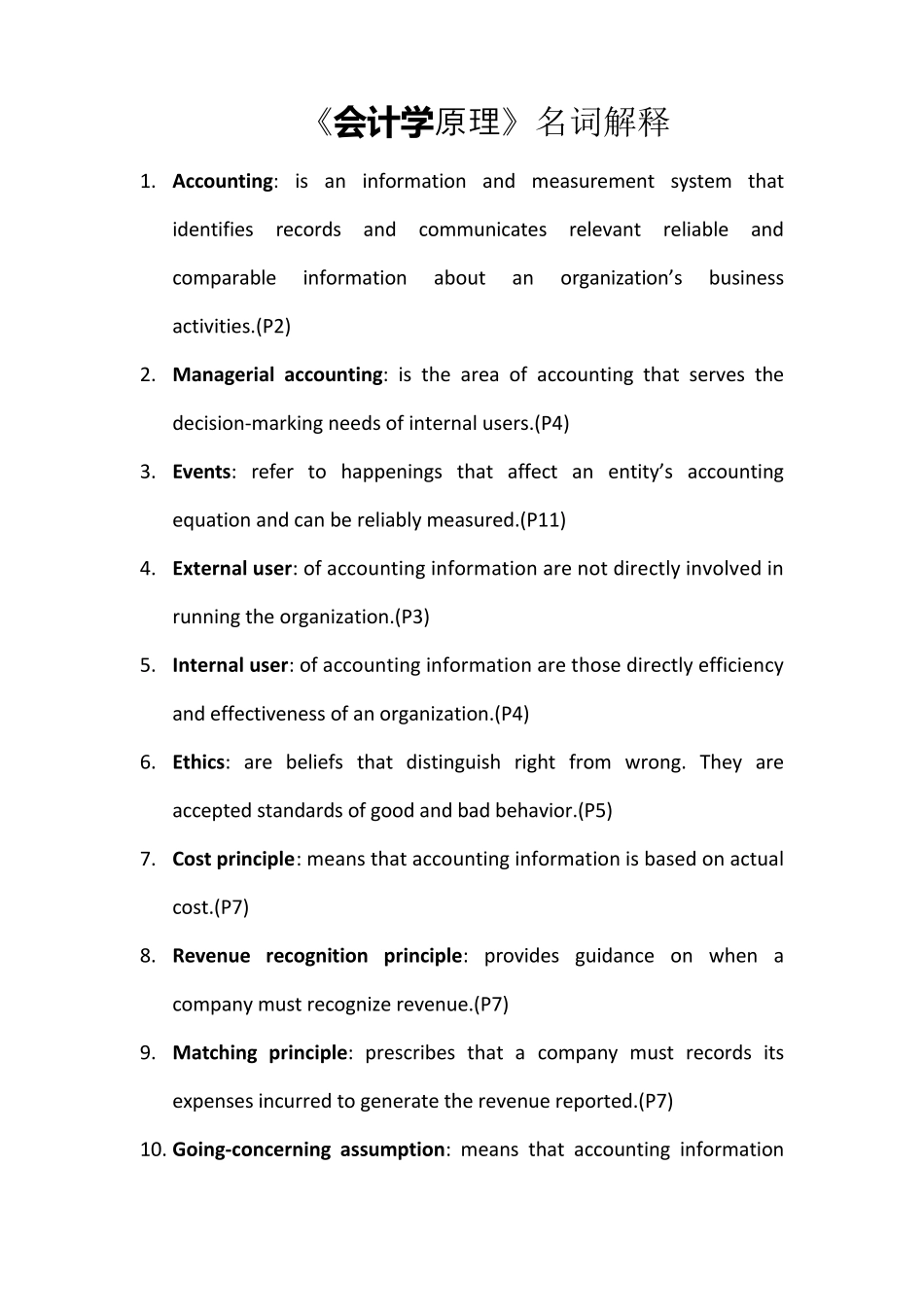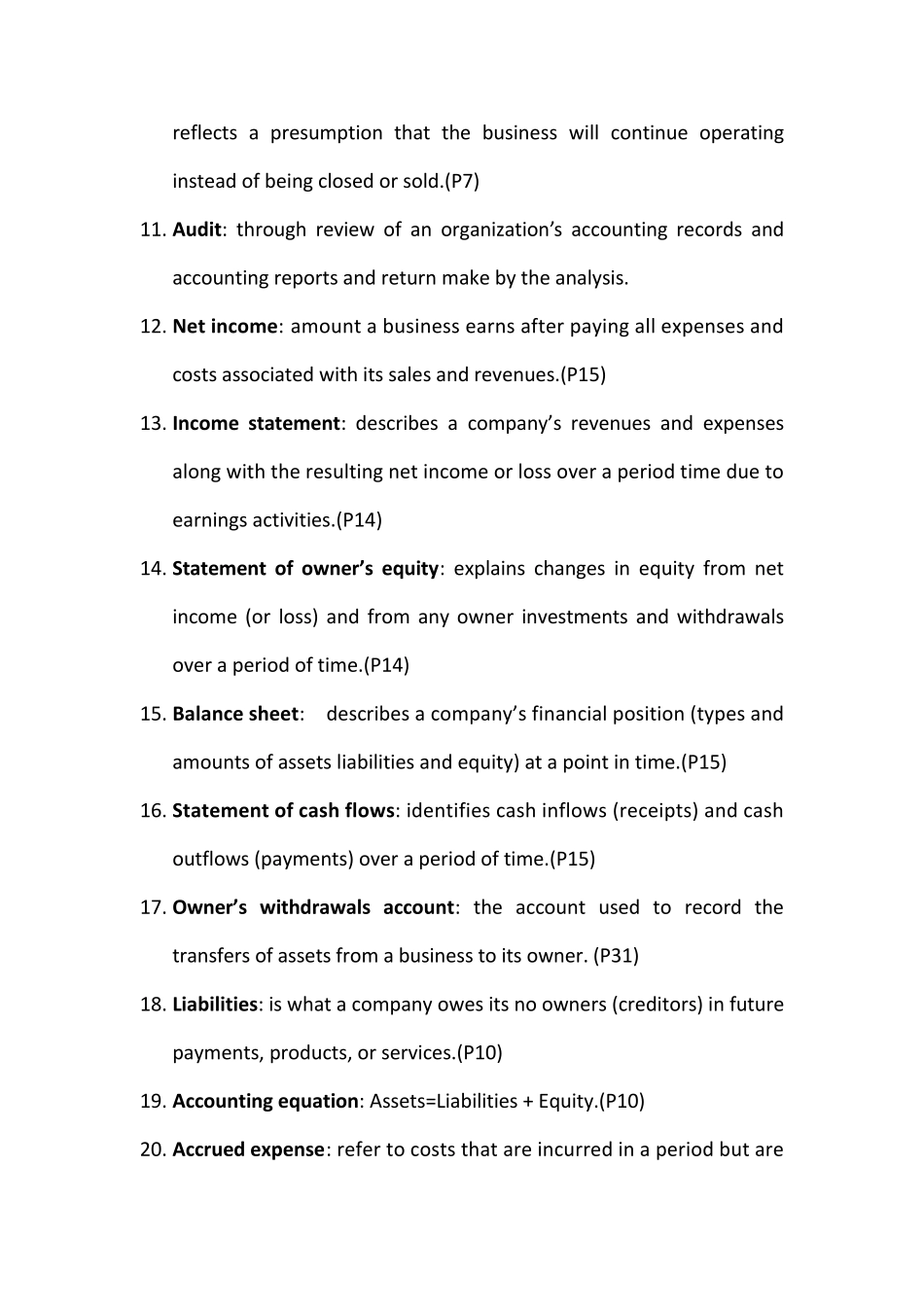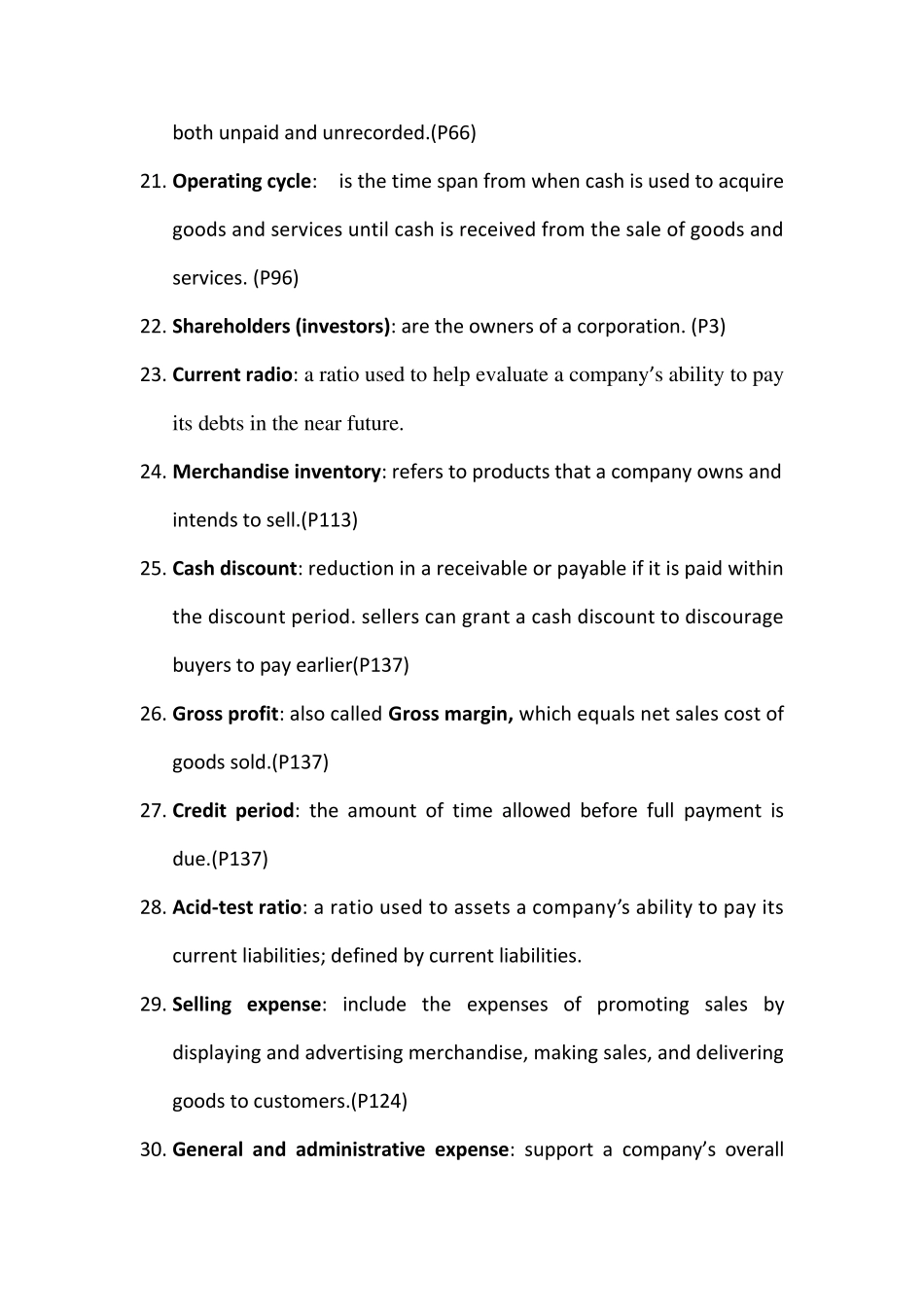《会计学原理》名词解释 1. Accounting: is an information and measurement system that identifies records and communicates relevant reliable and comparable information about an organization’s business activities.(P2) 2. Managerial accounting: is the area of accounting that serves the decision-marking needs of internal users.(P4) 3. Events: refer to happenings that affect an entity’s accounting equation and can be reliably measured.(P11) 4. External user: of accounting information are not directly involved in running the organization.(P3) 5. Internal user: of accounting information are those directly efficiency and effectiveness of an organization.(P4) 6. Ethics: are beliefs that distinguish right from wrong. They are accepted standards of good and bad behavior.(P5) 7. Cost principle: means that accounting information is based on actual cost.(P7) 8. Revenue recognition principle: provides guidance on when a company must recognize revenue.(P7) 9. Matching principle: prescribes that a company must records its expenses incurred to generate the revenue reported.(P7) 10. Going-concerning assumption: means that accounting information reflects a presumption that the business will continue operating instead of being closed or sold.(P7) 11. Audit: through review of an organization’s accounting records and accounting reports and return make by the analysis. 12. Net income: amount a business earns after paying all expenses and costs associated with its sales and revenues.(P15) 13. Income statement: describes a company’s revenues and expenses along with the resulting net income or loss over a period time due to earnings activities.(P14) 14. Statement of owner’s equity: explains changes in equity from net income (or loss) and from any...


